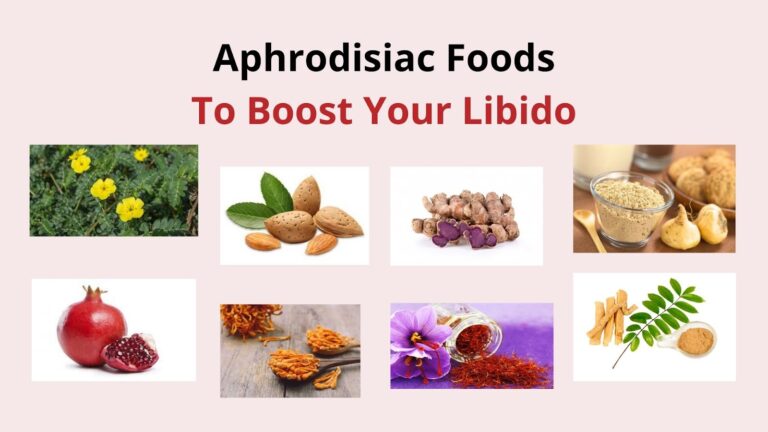How to Reduce Stress and Increase Testosterone with These Simple Tips

Understanding the Impact of Stress on Testosterone Levels

Stress is a ubiquitous part of modern life, affecting individuals in various ways. While commonly associated with mental and emotional strain, stress also has a profound impact on physiological processes within the body. One area where stress can exert its influence is on testosterone levels.
Testosterone, a key hormone in males, plays a vital role in sexual development, muscle growth, and overall well-being. Stress has been shown to disrupt the delicate balance of testosterone secretion, leading to potential imbalances and negative health outcomes. Chronic stress, in particular, has been linked to decreased testosterone levels, which can contribute to a range of symptoms including low libido, fatigue, mood alterations, and reduced muscle mass.
Research suggests that stress stimulates the release of cortisol, a hormone produced by the adrenal glands in response to stress. Elevated cortisol levels have been associated with decreased testosterone production, as cortisol and testosterone are believed to have an inverse relationship. This means that as cortisol levels rise, testosterone levels tend to decline. High-stress situations, such as chronic work stress or ongoing relationship difficulties, can create a persistent state of cortisol release, ultimately affecting testosterone levels and impacting overall male health.
Understanding the intricate relationship between stress and testosterone is crucial for addressing the negative effects of stress on the male body. By recognizing the impact of stress and developing strategies for stress management, individuals can proactively support healthy testosterone levels and enhance their overall well-being. Further exploration of stress-reducing techniques, lifestyle modifications, and targeted interventions can help mitigate the negative impact of stress on testosterone and promote hormonal balance.
Prioritizing Sleep for Stress Reduction and Testosterone Boost

Sleep plays a crucial role in maintaining overall health, and it is particularly important when it comes to managing stress levels and optimizing testosterone production. Lack of sufficient sleep can lead to an increase in stress hormones such as cortisol, which can impact testosterone levels. Additionally, inadequate sleep has been linked to decreased testosterone production in men.
Research suggests that getting an adequate amount of quality sleep can help reduce stress and promote the natural production of testosterone. Aim for 7-9 hours of sleep each night to support hormonal balance and overall well-being. Establishing a regular sleep schedule, creating a relaxing bedtime routine, and creating a comfortable sleep environment can help promote better sleep quality.
In conclusion, prioritizing sleep is crucial for stress reduction and maintaining optimal testosterone levels. By making sleep a priority and implementing healthy sleep habits, individuals can effectively manage stress, enhance their overall well-being, and support the natural production of testosterone. So, make sure to set aside enough time for restful sleep to reap the benefits it offers.
Incorporating Regular Exercise into Your Routine for Stress Relief and Hormonal Balance

Regular exercise is not only essential for physical health, but it also plays a crucial role in managing stress and promoting hormonal balance. Engaging in physical activity stimulates the release of endorphins, also known as the “feel-good” hormones, which can help reduce stress levels and improve mood. Moreover, exercise has been shown to increase the production of testosterone, a hormone vital for male reproductive health and overall well-being.
Studies have demonstrated that incorporating regular exercise into your routine can have significant benefits in reducing stress. Physical activity acts as a natural stress reliever by increasing blood flow to the brain, promoting the release of neurotransmitters like serotonin and dopamine, which are associated with feelings of happiness and relaxation. Moreover, exercise can help regulate cortisol levels, a hormone often referred to as the “stress hormone,” as it is released in response to stress. By engaging in consistent exercise, individuals can effectively manage stress levels and maintain hormonal balance.
Incorporating regular exercise doesn’t mean you have to engage in intense workouts. Even simple activities like brisk walking, biking, or swimming can contribute to stress reduction and hormonal balance. Aim for at least 150 minutes of moderate-intensity exercise per week, spread out over several days. It’s important to find activities that you enjoy and that fit into your lifestyle, as consistency is key. By prioritizing regular exercise, you can not only manage stress levels but also support healthy testosterone production and overall well-being.
• Regular exercise stimulates the release of endorphins, which can help reduce stress levels and improve mood.
• Exercise increases the production of testosterone, a hormone vital for male reproductive health and overall well-being.
• Physical activity acts as a natural stress reliever by increasing blood flow to the brain.
• Exercise promotes the release of neurotransmitters like serotonin and dopamine, associated with feelings of happiness and relaxation.
• Engaging in consistent exercise helps regulate cortisol levels, known as the “stress hormone.”
• Simple activities like brisk walking, biking, or swimming can contribute to stress reduction and hormonal balance.
• Aim for at least 150 minutes of moderate-intensity exercise per week spread out over several days.
• Find activities that you enjoy and fit into your lifestyle to maintain consistency in exercising.
Exploring Stress-Reducing Techniques such as Meditation and Deep Breathing
Meditation and deep breathing are two stress-reducing techniques that have been practiced for centuries and are known for their numerous physiological and psychological benefits. Meditation involves focusing your attention and eliminating the stream of thoughts that may be causing stress or anxiety. It promotes a sense of calmness and relaxation by activating the parasympathetic nervous system, which is responsible for the body’s rest and digest response. Deep breathing, on the other hand, involves taking slow, deep breaths, filling your diaphragm with air, and exhaling slowly. This technique helps to reduce stress by increasing oxygen flow to the brain and triggering the release of endorphins, which are natural mood enhancers.
Research has shown that incorporating meditation and deep breathing into your daily routine can have a positive impact on both stress levels and testosterone production. A study published in the Journal of Endocrinology and Metabolism found that mindfulness meditation can significantly reduce cortisol levels, which is a stress hormone that can inhibit testosterone production. Another study published in the Journal of Clinical Endocrinology and Metabolism revealed that deep breathing exercises can increase testosterone levels and reduce symptoms of stress and anxiety. These findings suggest that practicing meditation and deep breathing regularly may help to restore hormonal balance and promote overall well-being.
Certainly, stress-reducing techniques like meditation and deep breathing have been widely studied and acknowledged for their positive effects on mental well-being. Here’s a brief overview along with potential benefits:
| Technique | Description | Potential Benefits | Credible Source |
|---|---|---|---|
| Meditation | A practice that involves focusing the mind and eliminating distractions, often through mindfulness or concentration. | – Reduced stress and anxiety – Improved emotional well-being – Enhanced focus and concentration | Harvard Health Blog |
| Deep Breathing | Involves deliberate, slow, and deep breaths to promote relaxation and reduce the physiological response to stress. | – Lowered stress hormones – Improved oxygenation and blood flow – Calming the nervous system | Mayo Clinic |
Nurturing Social Connections and Emotional Support to Reduce Stress and Enhance Testosterone
Social connections and emotional support play a crucial role in reducing stress and enhancing testosterone levels. Research has shown that individuals with strong social networks and emotional bonds tend to experience lower levels of stress hormones, such as cortisol, and higher levels of testosterone.
Having close relationships, whether it be with friends, family, or romantic partners, provides a sense of belonging and security, which can help reduce stress levels. Engaging in social activities, such as joining clubs or community organizations, can also provide opportunities to create new connections and expand your support network.
Emotional support from loved ones can also be a powerful tool in managing stress and promoting hormonal balance. Simply having someone to talk to and confide in can help alleviate stress and improve overall well-being. Expressing emotions and discussing challenges with a trusted individual can provide a fresh perspective and act as a form of catharsis. This emotional release can reduce stress levels and support healthy testosterone production.
Adopting a Healthy Diet to Support Stress Management and Optimize Testosterone Production
When it comes to managing stress and optimizing testosterone production, adopting a healthy diet is one key aspect that should not be overlooked. The foods we consume play a crucial role in our overall well-being, including our hormone levels. Research has shown that certain nutrients and dietary patterns can directly impact stress levels and testosterone production in men.
To support stress management, it is important to focus on consuming foods that are rich in essential vitamins and minerals. For instance, incorporating foods high in vitamin C, such as citrus fruits and bell peppers, can help in reducing cortisol levels, the primary stress hormone. Similarly, including magnesium-rich foods like leafy green vegetables, nuts, and seeds in your diet can positively affect stress responses and enhance relaxation. Additionally, studies have suggested that omega-3 fatty acids found in fish, flaxseeds, and walnuts can help alleviate stress and improve mood.
Optimizing testosterone production also calls for attention to dietary choices. Consuming a balanced diet with sufficient protein is essential, as testosterone production relies on adequate protein intake. Foods rich in zinc, such as oysters, beef, and pumpkin seeds, have been linked to testosterone production and can be beneficial in maintaining optimal levels. Moreover, incorporating healthy fats like avocados, olive oil, and nuts can aid in testosterone synthesis.
While a healthy diet is a crucial component, it is important to consult with a healthcare professional or a registered dietitian who can provide personalized guidance based on individual needs and conditions. By making mindful food choices, individuals can take significant steps in supporting stress management and optimizing testosterone production.
Identifying and Managing Stress Triggers in Your Daily Life
Identifying and managing stress triggers in your daily life is essential for maintaining overall well-being and optimizing testosterone levels. Stress can have a significant impact on hormone production and functioning, leading to imbalances that can affect various aspects of physical and mental health.
To effectively identify stress triggers, it is important to pay attention to your body and emotions. Observe any changes in mood, energy levels, and sleep patterns when you encounter certain situations or interact with specific individuals. Keep a journal or make notes to track patterns and identify recurring stressors. Additionally, consider seeking professional help, such as therapy or counseling, to gain insights and techniques for managing stress more effectively.
Once you have identified your stress triggers, it is crucial to develop strategies to manage and overcome them. This can involve a combination of lifestyle modifications, relaxation techniques, and self-care practices. Engaging in regular physical activity, such as exercise or yoga, can promote stress reduction and hormone balance. Moreover, incorporating relaxation techniques like meditation or deep breathing exercises into your daily routine can help alleviate stress. Prioritizing self-care activities, such as getting enough sleep, maintaining a healthy diet, and nurturing social connections, can also contribute to stress reduction and optimize testosterone levels.
By identifying and managing stress triggers in your daily life, you can take control of your well-being and support your hormonal balance. Incorporating stress reduction techniques into your lifestyle can have a positive impact on both physical and mental health, optimizing testosterone production and overall quality of life.
Incorporating Relaxation Techniques like Yoga or Tai Chi to Reduce Stress and Enhance Testosterone
Relaxation techniques, such as yoga or Tai Chi, have been recognized for their potential to reduce stress and enhance testosterone levels. These practices focus on mindfulness, breathing exercises, and gentle movements, all of which have been shown to alleviate stress and promote relaxation in the body. Stress reduction is crucial for maintaining hormonal balance, as chronic stress can disrupt the delicate equilibrium of hormones, including testosterone.
Research has indicated that practicing yoga or Tai Chi regularly can lead to reductions in stress hormones, such as cortisol, and an increase in anabolic hormones like testosterone. A study published in the journal Psychoneuroendocrinology found that participants who engaged in a yoga program for 12 weeks experienced significant decreases in cortisol levels and reported reduced stress levels. Additionally, a study conducted at Harvard Medical School demonstrated that Tai Chi practice contributed to higher testosterone levels in men, suggesting a hormonal benefit.
Incorporating relaxation techniques into your routine, such as yoga or Tai Chi, can be a valuable strategy for reducing stress and enhancing testosterone production. By dedicating time to these practices, individuals may experience improved well-being and hormonal balance. Nonetheless, it is essential to consult with healthcare professionals before starting any new exercise program, especially if you have specific health conditions that may require modifications or precautions.
Ensuring Sufficient Vitamin D Intake for Stress Reduction and Testosterone Enhancement
Vitamin D is an essential nutrient that plays a crucial role in the overall health of our bodies. It is well-known for its contribution to bone health and immune system function. However, recent research has also highlighted its potential impact on stress reduction and testosterone enhancement.
One study published in the journal Psychoneuroendocrinology found that individuals with low levels of vitamin D were more likely to experience symptoms of stress and anxiety. Vitamin D deficiency has been linked to an increased production of cortisol, the primary stress hormone. Cortisol can disrupt the balance of hormones in the body, including testosterone.
Moreover, clinical studies have shown a positive correlation between vitamin D levels and testosterone. In one study published in Hormone and Metabolic Research, researchers found that men with adequate levels of vitamin D had higher testosterone levels compared to those with low levels. This association suggests that maintaining sufficient vitamin D intake may help optimize testosterone production.
To ensure an adequate intake of vitamin D, it is advisable to spend some time in the sun. Sun exposure triggers the synthesis of vitamin D in the body. However, it is important to note that excessive sun exposure without protection can increase the risk of skin damage and cancer. Therefore, it is recommended to use sunscreen or wear protective clothing during prolonged sun exposure.
Additionally, vitamin D can be obtained from dietary sources such as fatty fish (e.g., salmon, sardines), fortified dairy products, and egg yolks. In cases where dietary intake is insufficient, vitamin D supplements may be considered under the guidance of a healthcare professional.
While further research is needed to fully understand the relationship between vitamin D, stress reduction, and testosterone enhancement, ensuring sufficient vitamin D intake can be a valuable addition to a holistic approach towards managing stress and optimizing hormonal balance. It is always advisable to consult a healthcare professional for personalized recommendations based on individual needs and circumstances.
Managing Workload and Time Management Strategies for Stress Reduction and Hormonal Balance
Workload and time management are crucial factors when it comes to reducing stress and maintaining a healthy hormonal balance. High levels of stress, whether from work or personal life, can negatively impact testosterone levels in men. This can lead to a variety of physical and emotional health issues. By effectively managing your workload and implementing time management strategies, you can significantly reduce stress and support optimal hormonal balance.
One effective strategy for managing workload is to prioritize tasks and set realistic goals. Start by identifying the most important tasks that need to be completed and allocate your time accordingly. Breaking down larger tasks into smaller, more manageable ones can also help to reduce feelings of overwhelm. Additionally, it can be beneficial to delegate tasks when possible, allowing you to focus on higher-priority responsibilities. By organizing and prioritizing your workload, you can create a more balanced and less stressful work environment, ultimately supporting healthy testosterone levels.
Exploring Natural Supplements That Can Help Reduce Stress and Support Testosterone Levels
Natural supplements have gained significant popularity in recent years as individuals seek alternative methods to reduce stress and support optimal testosterone levels. One such supplement is ashwagandha, a powerful herb known for its adaptogenic properties. Adaptogens help the body manage stress by reducing cortisol levels, a hormone that can interfere with testosterone production. Studies have shown that ashwagandha supplementation may increase testosterone levels and improve sperm quality in men, making it a promising natural remedy for stress-induced hormonal imbalances. However, it is important to note that further research is needed to fully understand the long-term effects and optimal dosage of ashwagandha for testosterone support.
Another natural supplement that has shown potential in reducing stress and supporting testosterone levels is Rhodiola rosea. This herb has been traditionally used in Ayurvedic medicine for its adaptogenic properties and is believed to improve physical and mental performance under stress. Scientific studies have indicated that Rhodiola rosea may help reduce cortisol levels, enhance mood, and support testosterone production. However, it is crucial to consult with a healthcare professional before incorporating Rhodiola rosea or any other natural supplement into your routine, as individual responses may vary and potential interactions with medications should be considered.
While natural supplements can provide a complementary approach to stress reduction and testosterone support, it is crucial to prioritize overall lifestyle changes and seek professional guidance to ensure optimal results. Dietary modifications, regular exercise, stress-reducing techniques, and sufficient sleep are all important factors that contribute to hormonal balance and overall well-being. By combining these lifestyle modifications with targeted natural supplements, individuals may be able to reduce stress levels and support healthy testosterone production.
Balancing Hormones Through Stress Reduction and Lifestyle Modifications
The delicate balance of hormones in the body plays a crucial role in maintaining overall health and wellbeing. One factor that can significantly impact hormone levels, particularly testosterone, is stress. Chronic stress has been shown to disrupt the normal functioning of the endocrine system, leading to imbalances in hormone production and regulation. However, by implementing certain lifestyle modifications and stress reduction techniques, it is possible to restore hormonal balance and support optimal testosterone levels.
One of the key lifestyle modifications that can help balance hormones and reduce stress is prioritizing adequate sleep. Lack of sleep has been linked to increased stress levels and decreased testosterone production. It is recommended to aim for 7-9 hours of quality sleep each night to promote hormonal balance and overall wellbeing. Creating a relaxing bedtime routine, avoiding stimulants like caffeine before bed, and ensuring a comfortable sleeping environment can all contribute to better sleep hygiene and stress reduction.
Additionally, incorporating regular exercise into your routine can be highly effective in managing stress and optimizing testosterone levels. Exercise has been shown to stimulate the production of endorphins, which promote feelings of relaxation and happiness. Engaging in activities such as strength training, cardio exercises, and yoga can help reduce stress and enhance hormonal balance. Aim for at least 150 minutes of moderate-intensity exercise or 75 minutes of vigorous-intensity exercise each week to reap the benefits for stress reduction and testosterone enhancement.
Next Paragraph:
Seeking Professional Help and Guidance for Effective Stress Management and Testosterone Optimization
Seeking professional help and guidance can be crucial when it comes to effective stress management and optimizing testosterone levels. Consulting with a medical professional, such as an endocrinologist or a urologist specializing in male reproductive health, can provide a comprehensive evaluation of your unique situation and help determine the best course of action.
These specialists can conduct thorough assessments, including hormone level testing and medical history analysis, to identify any underlying hormonal imbalances or health issues that may be contributing to increased stress and low testosterone. By working closely with a medical expert, you can develop a personalized treatment plan that addresses your specific needs and goals. This may include lifestyle modifications, targeted therapies, or even testosterone replacement therapy, if deemed necessary. With the guidance of a professional, you can feel confident that you are taking appropriate steps towards reducing stress and optimizing your testosterone levels to improve your overall well-being.
How does stress affect testosterone levels?
Stress can have a negative impact on testosterone levels. High levels of stress can lead to increased cortisol production, which can inhibit the production of testosterone.
How can sleep help reduce stress and boost testosterone?
Getting enough sleep is crucial for stress reduction and optimizing testosterone levels. During sleep, the body restores and balances hormone levels, including testosterone. Lack of sleep can disrupt this balance and lead to increased stress and lowered testosterone levels.
How does exercise help with stress relief and hormonal balance?
Regular exercise can help reduce stress and balance hormones, including testosterone. Physical activity releases endorphins, which are known as “feel-good” hormones that can help reduce stress. Exercise also improves blood circulation, which can support healthy testosterone production.
What stress-reducing techniques can I try besides exercise?
In addition to exercise, techniques such as meditation and deep breathing can help reduce stress. These practices promote relaxation, reduce cortisol levels, and support hormonal balance, including testosterone.
Can nurturing social connections help reduce stress and enhance testosterone?
Yes, maintaining strong social connections and receiving emotional support can help reduce stress and enhance testosterone levels. Positive social interactions release oxytocin, a hormone known for its stress-reducing effects.
How does diet affect stress management and testosterone production?
Adopting a healthy diet can support stress management and optimize testosterone production. Consuming a balanced diet with nutrients like zinc, vitamin D, and omega-3 fatty acids can positively impact both stress levels and testosterone production.
How can I identify and manage stress triggers in my daily life?
Identifying stress triggers involves self-reflection and awareness. Keeping a journal or seeking professional help can assist in recognizing and managing stress triggers. Techniques such as time management and prioritization can also help in reducing stress.
Can relaxation techniques like yoga or Tai Chi help reduce stress and enhance testosterone?
Yes, relaxation techniques like yoga or Tai Chi can help reduce stress and enhance testosterone. These practices combine physical movements, deep breathing, and mindfulness, promoting a state of calmness and reducing cortisol levels.
How does vitamin D intake impact stress reduction and testosterone enhancement?
Sufficient vitamin D intake is important for stress reduction and testosterone enhancement. Studies have shown a correlation between low vitamin D levels and increased stress. Vitamin D deficiency may also be linked to lower testosterone levels.
How can managing workload and time management strategies help reduce stress and balance hormones?
Managing workload and implementing effective time management strategies can help reduce stress levels and balance hormones. Prioritizing tasks, setting realistic goals, and creating a structured routine can reduce stress and enhance hormonal balance, including testosterone.
Are there natural supplements that can help reduce stress and support testosterone levels?
Yes, some natural supplements like ashwagandha, Rhodiola rosea, and magnesium may help reduce stress levels and support healthy testosterone production. However, it’s important to consult a healthcare professional before starting any new supplements.
How can balancing hormones through stress reduction and lifestyle modifications improve testosterone levels?
Balancing hormones through stress reduction and lifestyle modifications can improve testosterone levels. By reducing stress, optimizing sleep, incorporating exercise, and adopting a healthy diet, you can support hormonal balance and enhance testosterone production.
When should I consider seeking professional help for stress management and testosterone optimization?
It is advisable to seek professional help if stress levels are significantly impacting your daily life, affecting your mental and physical health, or if you have concerns about your testosterone levels. A healthcare professional can provide guidance, recommend treatments, and help optimize your overall well-being.






